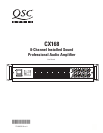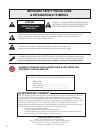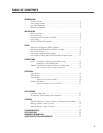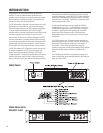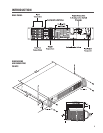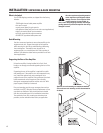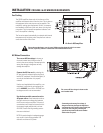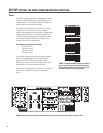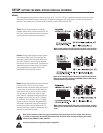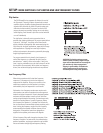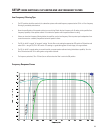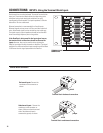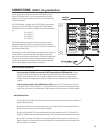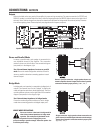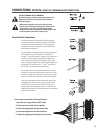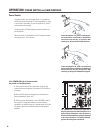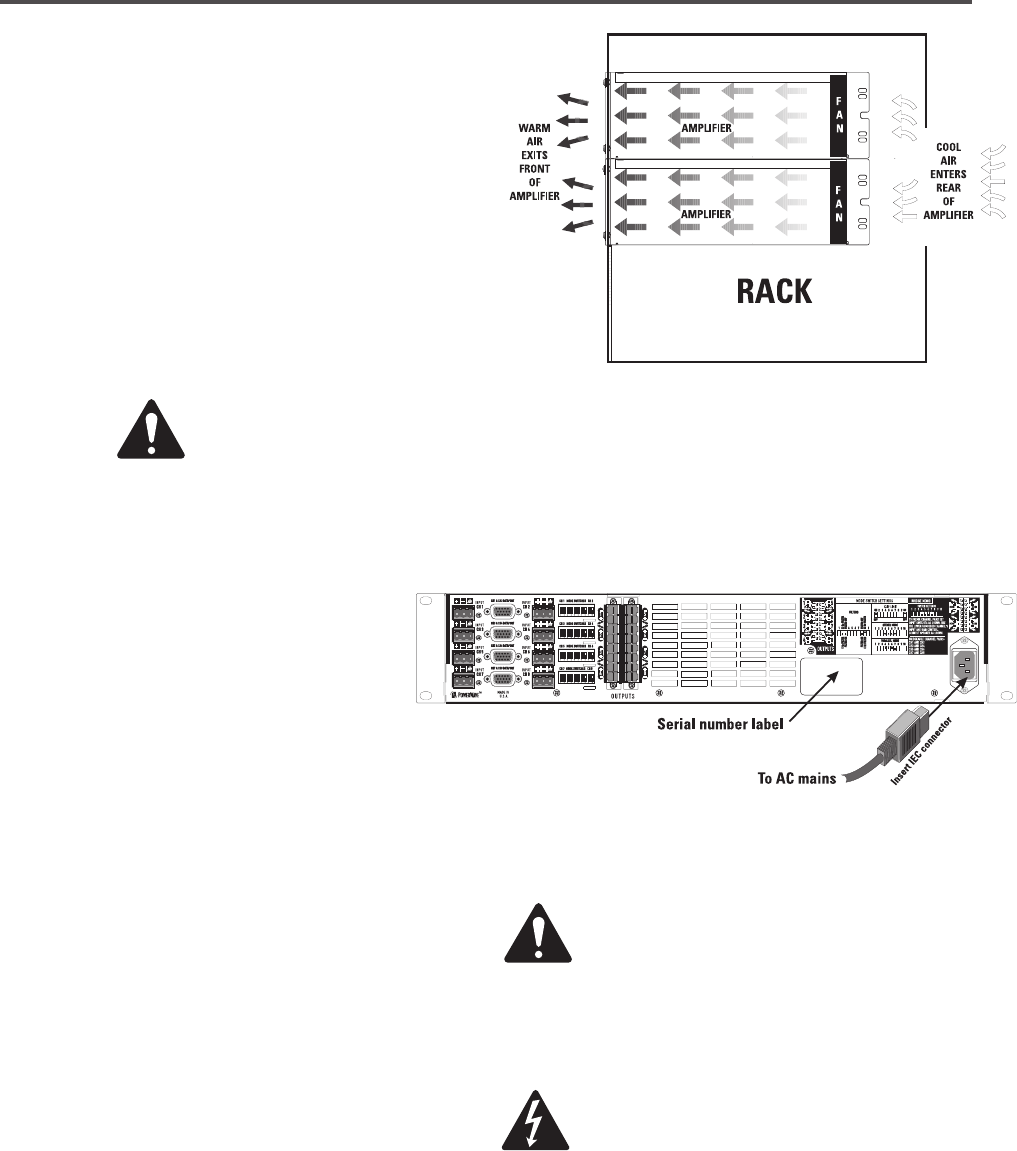
7
INSTALLATION: COOLING & AC MAINS REQUIREMENTS
AC Mains Connection
Do not obstruct the front or rear air vents! Make sure that plenty of cool air can enter
the rack, especially if there are other units which exhaust hot air into it.
Connecting to the wrong line voltage is
dangerous and may damage the amplifier or
constitute the risk of electric shock. Verify the
correct AC line voltage by checking the
specification printed on the serial number
label on the rear panel.
Air flow in QSC amplifiers
The CX168 amplifier draws cool air into the rear of the
amplifier and exhausts hot air from the front. This is done so
the equipment in the rack stays as cool as possible. This
method of cooling gives the operator “direct” air tempera-
ture feedback at the front of the rack, where it is the most
convenient. The front panel’s temperature indicates “how
hard” the amplifier is working.
The fan varies speed automatically to maintain safe internal
temperatures and minimize noise. Keep the front and rear
vents clear to allow full air flow.
The correct AC line voltage is shown on the
serial number label.
Fan Cooling
The correct AC line voltage is shown on
the serial number label. Make sure the AC
mains is the correct voltage. Connecting to the
wrong line voltage is dangerous and may
damage the amplifier.
Connect the AC line cord by orienting the
IEC plug correctly and pushing the plug firmly
into the IEC receptacle. It should seat tightly. It
can only be inserted when it is properly
oriented.
Use the cord supplied with the amplifier, or an
equivalent. Insure that the wire gauge of the
cord is #14AWG. Use of #16 or #18 AWG can
be dangerous and is not recommended.
Use the best possible connection to the
AC power source. Avoid extension cords as
they will cause some voltage drop between
the AC source and you amplifier. If the use of
an extension cord is required, ensure that it is
the shortest length possible and is at least
#14 AWG. Ensure that all grounding connec-
tions are maintained.
NOTE: Excessive length or inadequate gauge
may result in short muting episodes if all
channels are driven to full power.



